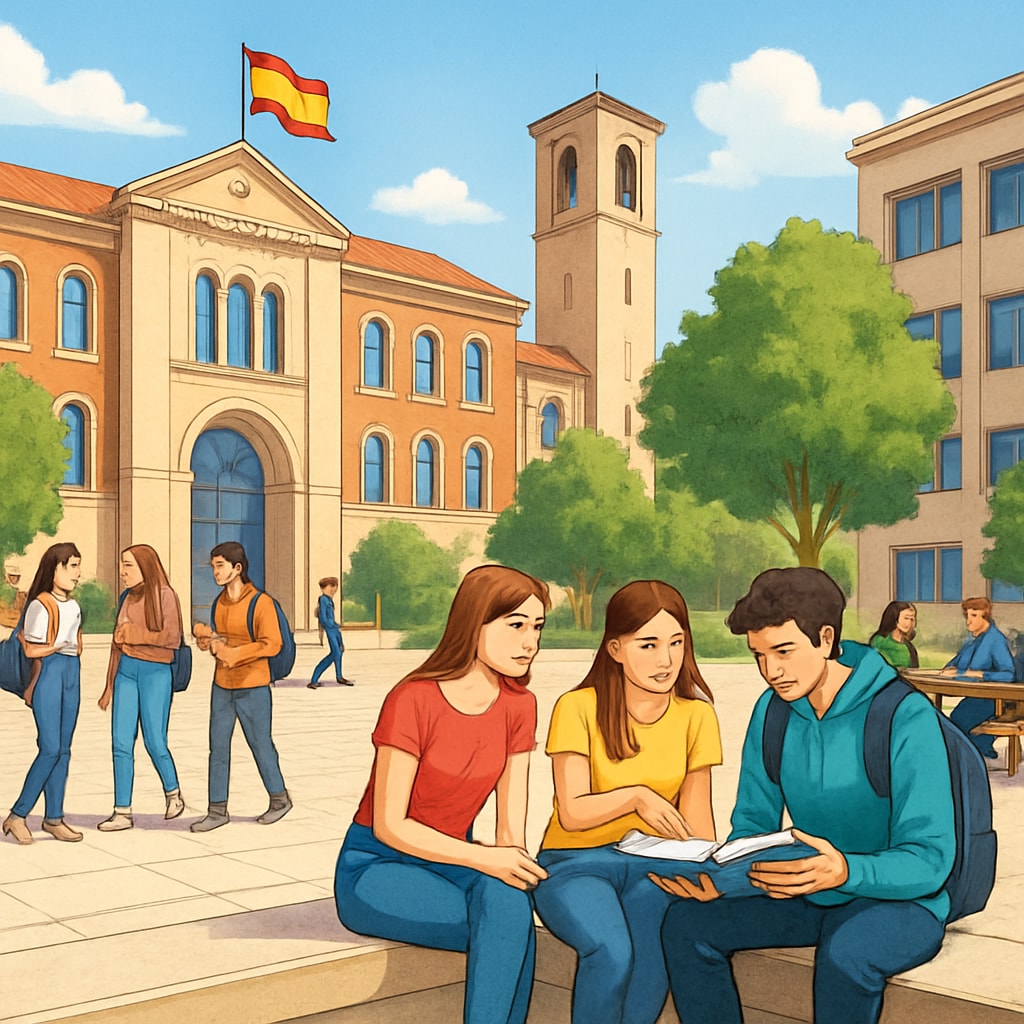Pursuing a master’s degree in Spain offers a unique opportunity to not only advance your education but also experience a vibrant culture and potentially lay the groundwork for relocation. With high-quality universities, diverse programs, and an inviting lifestyle, Spain stands out as a destination for international students seeking both academic and personal growth. In this article, we will explore the feasibility of studying for a master’s degree in Spain, the challenges and opportunities of relocating, and how to integrate into Spanish society effectively.
Why Choose Spain for Your Master’s Degree?
Spain has long been a popular destination for international students, and for good reason. The country boasts some of the top universities in Europe, offering master’s programs in fields ranging from business and engineering to the arts and humanities. Well-known institutions like the University of Barcelona and the Autonomous University of Madrid attract students from around the world, thanks to their strong academic reputation and relatively affordable tuition fees compared to other Western countries.
In addition to academics, Spain offers a high quality of life. The Mediterranean climate, rich cultural heritage, and vibrant social scene make it an attractive place to study and live. For students, this means not only gaining a degree but also experiencing a well-rounded lifestyle that includes access to world-class museums, festivals, and culinary traditions.

Relocating to Spain: Challenges and Opportunities
While the idea of relocating to Spain is exciting, it is essential to understand the practicalities involved. First, international students need to secure a student visa, which requires proof of university admission, financial stability, and health insurance. The process is straightforward, but planning ahead is crucial to ensure all documentation is in order.
Upon arrival, students will need to adapt to life in a new country. This includes finding suitable accommodation, whether through university housing or private rentals. It’s also beneficial to learn basic Spanish, as it will make daily life and integration much easier, even though many master’s programs are offered in English.
On the positive side, Spain provides numerous opportunities for students to stay after graduation. The country allows graduates of Spanish universities to apply for a one-year job search visa, giving them time to find employment and potentially transition to a work visa. This makes Spain an attractive option for those looking to establish a long-term career abroad.

Integrating into Spanish Society
Integration is a key aspect of successfully relocating to Spain. While the country is known for its friendly and welcoming people, taking steps to immerse oneself in the local culture will make the transition smoother. Joining student organizations, participating in cultural events, and making an effort to meet locals are all excellent ways to build connections.
In addition, understanding Spanish customs and etiquette can help students navigate social situations. For example, punctuality is often more relaxed in Spain compared to other countries, and mealtimes are typically later in the day. Adapting to these cultural norms demonstrates respect and helps foster meaningful relationships.
For those planning to stay in Spain after graduation, building a professional network is equally important. Attending career fairs, joining alumni networks, and engaging with industry-specific events can open doors to job opportunities and provide valuable insights into the local job market.
Conclusion
Studying for a master’s degree in Spain is more than an academic endeavor; it is a chance to embrace a new culture, expand your horizons, and potentially build a life in one of the most dynamic countries in Europe. While there are challenges, such as navigating the visa process and adapting to a new environment, the rewards of quality education, personal growth, and career opportunities make the effort worthwhile. Whether you aim to return home with international experience or establish a new life in Spain, the journey promises to be a transformative one.
For more information on studying abroad, you can explore resources like Education in Spain on Wikipedia or Education in Spain on Britannica.
Readability guidance: Use short paragraphs and bullet points to summarize key points; ensure smooth transitions between sections. Avoid excessive passive voice and keep sentences concise for better readability.


